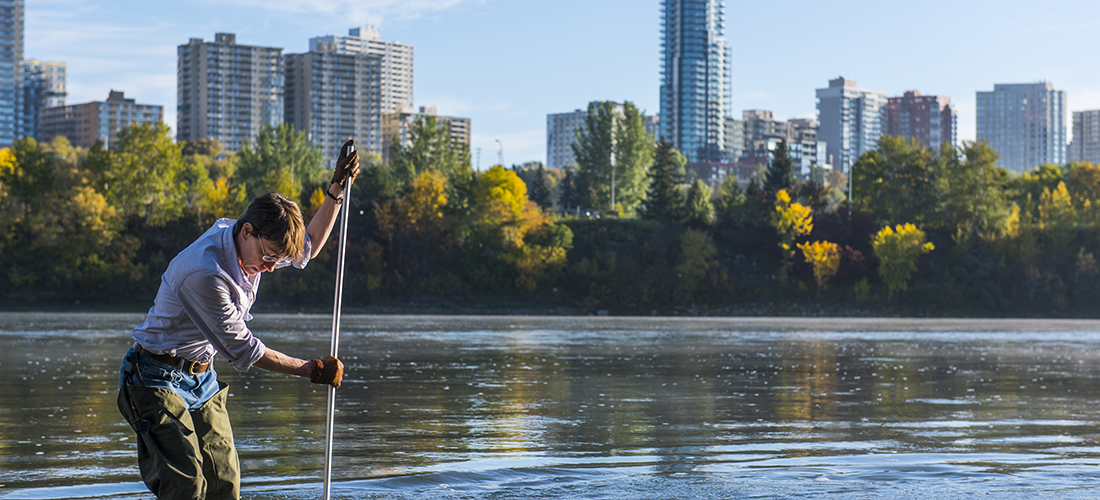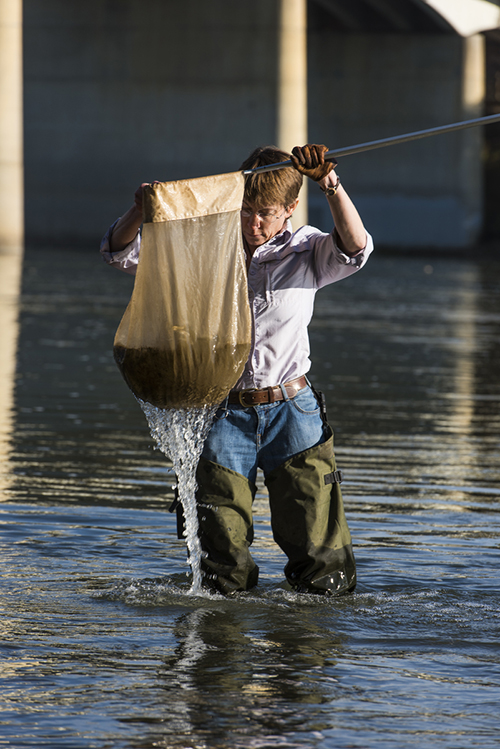
Heather Proctor wades into the North Saskatchewan River in search of freshwater invertebrates.
Q: What (courses/disciplines/values) do you teach?
A: Biol 108 Introduction to Biological Diversity, Biol 321 Mechanisms of Evolution, Zoology 351 Freshwater Invertebrate Diversity, and some occasional grad courses on evolution and/or arthropods. My main emphasis in teaching is biodiversity (taxonomic, behavioural, and ecological) and how it came to be.
Q: Why should people learn about it?
A: How can anyone NOT want to learn about the diversity of life around them? What a sorry world it would be if we were alone.
 Q: What are some of its "real-world" applications?
Q: What are some of its "real-world" applications?
A: Endless: bioprospecting, ecological assessment, conservation, agriculture, silviculture, ecotourism, etc.
Q: What's the coolest thing about this subject area?
A: When one teaches about biological diversity the topic never grows stale; there are always new and fascinating organisms being discovered, and novel things revealed about the lives of familiar ones.
Q: What's your favourite kind of teaching and/or learning space, and why?
A: I like to teach large classes traditionally, with me pontificating at the front of a lecture theatre to a rapt audience enthralled before me, and to teach small classes in the field where everyone can get dirty and wet and play with bugs.
Q: What was your favourite learning experience as an undergrad, and how do you incorporate that experience into teaching your students?
"There are always new and fascinating organisms being discovered, and novel things revealed about the lives of familiar ones."
A: I loved labs with live organisms and field trips with Dr. Hugh Clifford, who taught Freshwater Invertebrates to me when I was an undergrad. Now that I'm teaching Hugh's old course, I try to encourage students to look at live critters in the field and in the lab under the microscope, and marvel at their beauty and intricacy.
Q: What is one thing that people would be surprised to know about you?
A: That I used to wrangle cattle when I was a teenager.